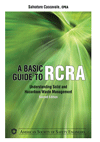Whispering in front of others is almost always inappropriate and generally makes others feel uncomfortable, according to an article in the Houston Chronicle. There are times, however, when whispering is necessary in the workplace, such as if you quickly need to tell a coworker two buttons just popped off his shirt. The key to whispering is making sure it is done quickly and appropriately, without making bystanders feel talked about or excluded.
Relentless workplace whispering is a form of mental bullying. Whispering to exclude, damage or demean another person -- whether the person himself is in ear shot or not -- never has a place in the office environment. The people responsible for constant whispering need to be held accountable through a manager or human resources. The consequences of ongoing whispering perceived as bullying can lead to employee absenteeism, in addition to rising health care, litigation and recruitment costs.
In cases where whispering is needed, such as to quickly inform a coworker that her shirt is tucked into her pantyhose, for example, whispering is considered all right. Announcing someone's personal information to a group is not respectful, and anyone would appreciate a whisper about such matters. Before whispering, coworkers need to ask themselves if what they are about to communicate is crucial, private information to be dealt with immediately by the person being whispered to. If so, the whisper is generally warranted and accepted by others.
Sometimes work-related information is intended for a few people's ears only. In confidential cases, the talking needs to happen behind closed doors or outside the building where other coworkers are not present. In a board room, for example, voices should be kept low when private, work-related information needs to be discussed and employees are constantly walking by. While whispering may be taking place in this situation, it is not on public display and not as frustrating to those who are not part of the conversation.
It is fair and even considered polite to lower your voice when speaking to an employee in common areas, such as in the break room, someone's cubicle or the hallways. This is to avoid disturbing others who are talking on the phone or concentrating, for example, and is hardly perceived as whispering for the wrong reasons. Lowering your voice is also acceptable because the whispering body language, such as a hand over one's mouth or staring at others, is not present.
Source: Houston Chronicle http://work.chron.com/workplace-etiquette-whispering-11842.html








